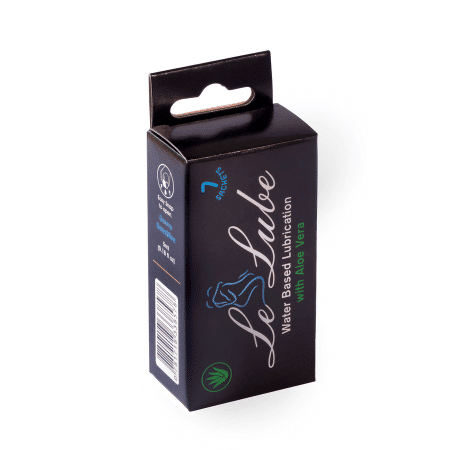lubrication for sex
Using lube can totally transform your sexual experience, making it more comfy, fun, and safe. It smooths things out by cutting down on friction—super helpful when things feel a bit dry, whether from long sessions, anal play, or life changes like menopause. It amps up the pleasure, keeps condoms from snapping, and even makes solo time more enjoyable. Plus, there are gentle options for sensitive skin and solutions for vaginal dryness.
Whether it’s enhancing your connection, making things glide more effortlessly, or just adding that extra layer of pleasure, the right lube can really take your experience to the next level.
Just pick the right type—water-based for versatility, silicone for longevity, or steer clear of oil with latex condoms—and you’re good to go!
Lubricants provide a range of benefits that can enhance sexual experiences, offering distinct advantages depending on their formulation, such as water-based, oil-based, or silicone-based varieties.
Why use a lube in the first place?
Reduces Friction: Lube can significantly reduce friction during sex, making the experience more comfortable and enjoyable for all parties involved. This is especially important in situations where natural lubrication might be insufficient, such as during longer sessions, with certain sexual activities, or for people experiencing dryness due to menopause, medication, or other factors.
Increases Pleasure: By reducing friction, lube can make sexual activity feel smoother and more pleasurable. It can enhance sensations and make it easier to experience sexual satisfaction.
Prevents Condom Breakage: When used with condoms, lube can reduce the risk of condom breakage by decreasing friction against the material. It’s important to use the correct type of lube with condoms, as oil-based lubes can degrade latex and increase the risk of breakage.
Facilitates Anal Sex: Unlike the vagina, the anus does not self-lubricate, making lube essential for anal sex to prevent discomfort and reduce the risk of tearing or injury.
Safe for Sensitive Skin: Many lubes are formulated to be gentle on sensitive skin, reducing the risk of irritation or allergic reactions. There are hypoallergenic and natural options available for those with specific sensitivities.
Enhances Masturbation: Lube can also enhance the experience of masturbation, making it feel more pleasurable and reducing the risk of chafing or irritation.
Assists with Vaginal Dryness: For individuals experiencing vaginal dryness, whether due to menopause, stress, or other factors, lube can provide necessary moisture to make sex more comfortable and enjoyable.
Selecting the right lube for you
Selecting the right lubricant for adult activities involves considering personal preferences, safety, and the specific use case.
When choosing a lubricant, it’s important to consider the type (water-based, silicone-based, or oil-based) and any ingredients that might cause irritation or allergic reactions. Water-based lubes are generally safe to use with condoms and toys, silicone-based lubes last longer and are waterproof but should be used with caution with silicone toys, and oil-based lubes are not recommended for use with latex condoms as they can cause them to break.
Here’s a comprehensive guide to help you navigate the selection process:
1. Determine the Purpose
- Personal Use vs. Partnered Activities: Decide whether the lube is for solo play, use with a partner, or both. Some lubes are formulated with specific activities in mind.
- Type of Activity: Consider the type of sexual activity (vaginal, anal, oral, etc.). Anal play, for example, might require a thicker lube like a silicone-based or a specially formulated water-based anal lube for extra cushioning and durability.
2. Choose the base
- Water-Based Lubricants: Versatile, safe with all condoms and toys, easy to clean up, but can dry out faster and might need reapplication. Ideal for most situations.
- Silicone-Based Lubricants: Longer lasting, waterproof, and ideal for water play or prolonged sessions. Not always suitable for use with silicone toys.
- Oil-Based Lubricants: Great for male masturbation or body massages but not recommended with latex condoms or certain toys due to potential material degradation.
- Hybrid Lubricants: Combine the ease of water-based lubes with the longevity of silicone. Check compatibility with toys and condoms.
3. Consider ingredients
- Sensitive Skin: Look for hypoallergenic formulas if you have sensitive skin. Avoid lubes with glycerin, parabens, and fragrances, which can cause irritation or yeast infections for some people.
- Natural/Organic Options: For those who prefer natural products, there are lubes made with organic ingredients that minimize exposure to synthetic chemicals.
4. Special Features
- Flavored Lubricants: Enhance oral activities but check for sugar content, as sugars can lead to yeast infections.
- Warming or Cooling Lubricants: Provide additional sensations. Test a small amount first to ensure comfort.
- pH-Balanced: Especially important for vaginal lubricants to maintain healthy vaginal flora.
5. Packaging & Ease of Use
- Dispenser Type: Pumps are convenient and hygienic, while tubes might offer more control over the amount dispensed.
- Size: Consider whether you need a travel-friendly size or a larger volume for home use.
6. Reviews and Recommendations
- Read reviews and product comparisons to gauge effectiveness, comfort, and satisfaction levels from other users.
- Medical and sex education resources can offer professional recommendations and advice on selecting safe products.
7. Experiment & Feedback
- Don’t hesitate to try different types and brands. What works best is highly individual.
- Communicate with your partner(s) about preferences and any reactions to the products you try.
8. Safety & Compatibility
- Always check the lubricant’s compatibility with condoms and sex toys. Silicone-based lubes, for instance, may not be suitable for use with silicone toys.
- Pay attention to expiration dates and storage recommendations to ensure the lube remains effective and safe to use.










